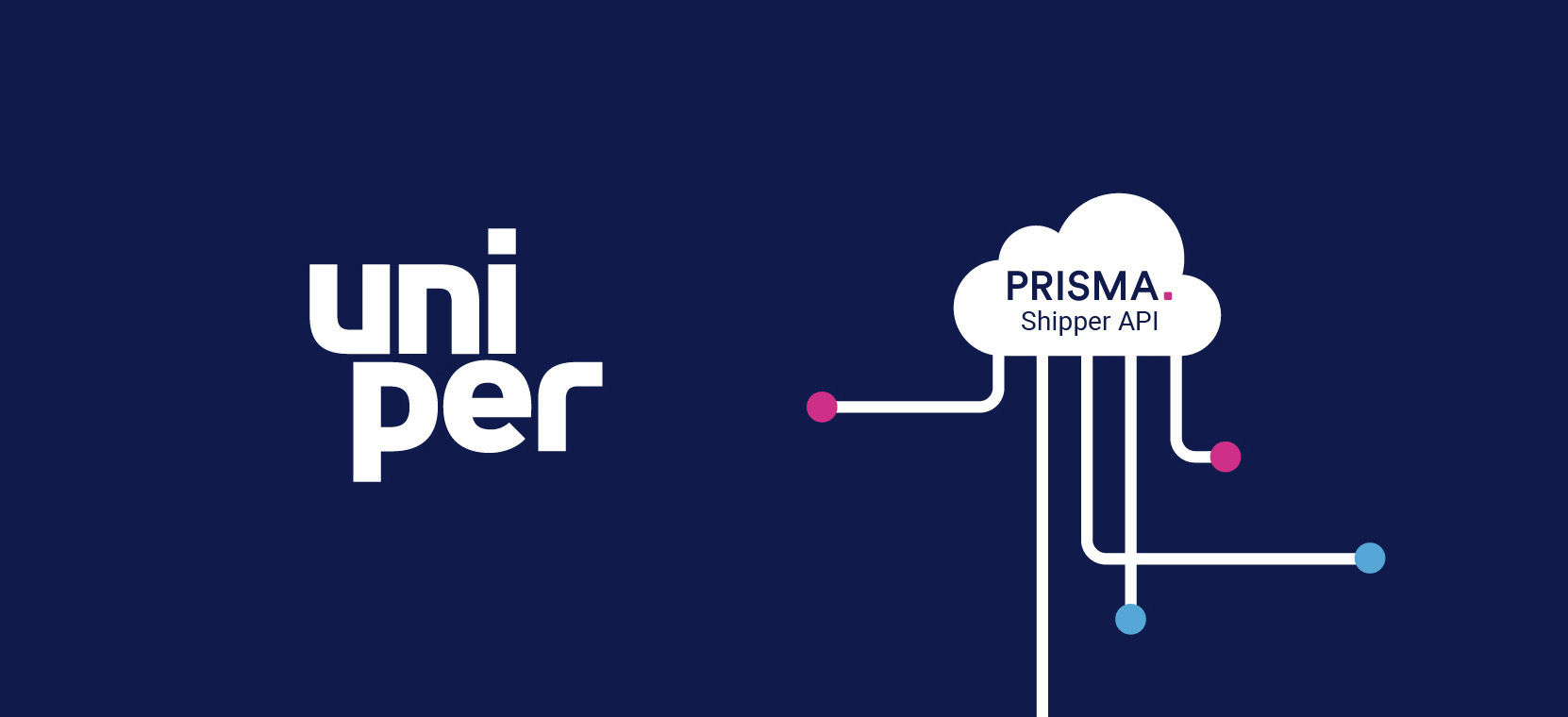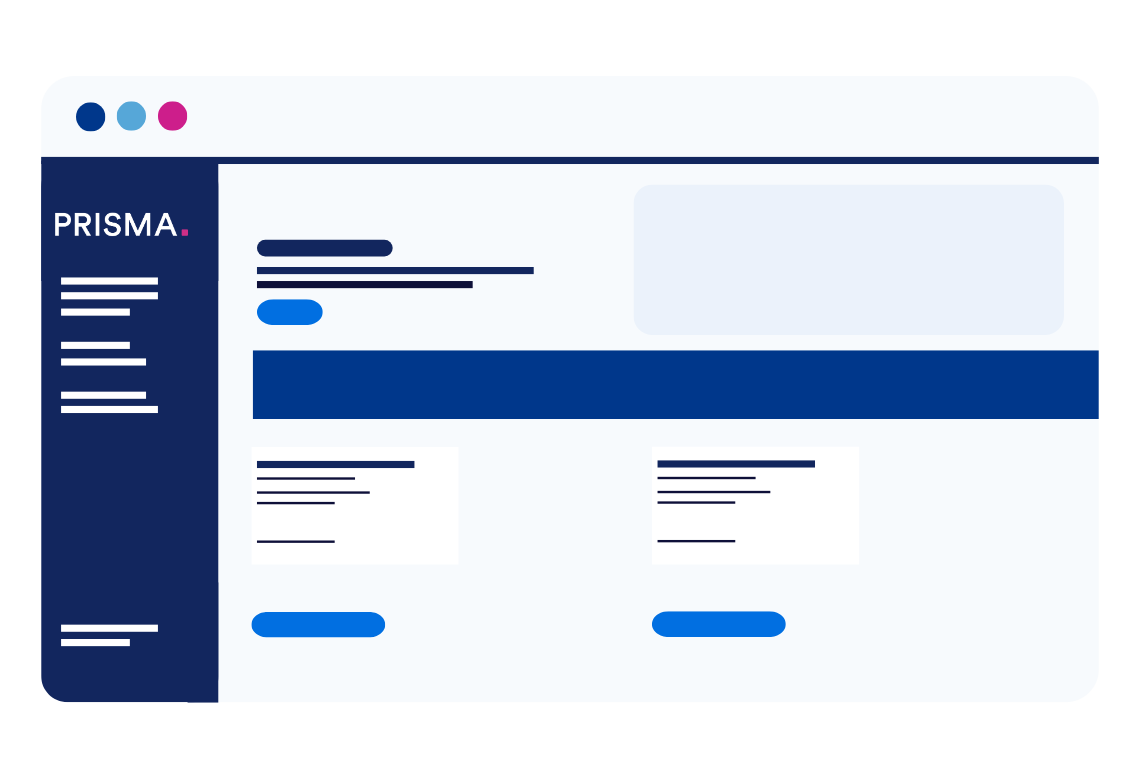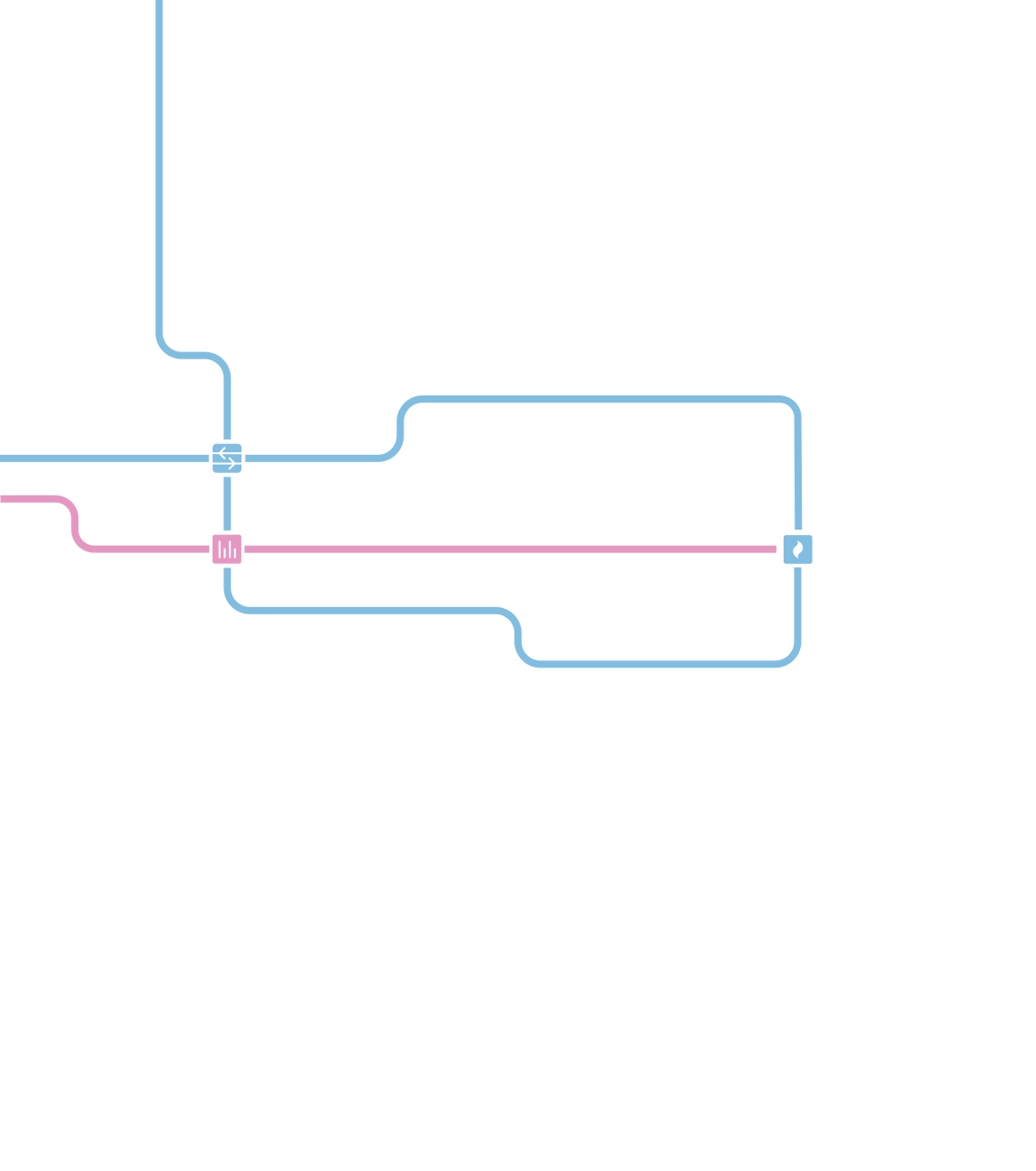New Job, New City: A Guide to Moving to Leipzig
Make your move smooth with our step-by-step guide for new PRISMAtes — from visas and housing to insurance, childcare, and more. Welcome to PRISMA!

Just landed a job at PRISMA and moving to Leipzig? Congratulations! This step-by-step guide will help you settle in with ease.
Leipzig offers an exceptional quality of life, a thriving tech and innovation landscape as well as a welcoming environment for international professionals.
offers an exceptional quality of life, a thriving tech and innovation landscape as well as a welcoming environment for international professionals.
Here’s our curated relocation guide designed especially for new PRISMAtes to help you get settled one step at a time.
Step 1: Getting Visa and Work Permit
Germany adheres to the visa policy of the Schengen Area, which includes all 22 EU member states and Iceland, Liechtenstein, Norway and Switzerland, while the visa policies of Bulgaria, Croatia, Cyprus and Romania are also very similar. Citizens of other countries should apply for a visa to move to Leipzig in their home country.
Applications must be submitted to the German mission responsible for your place of residence. Citizens of the US, Australia, Israel, Japan, Canada, South Korea and New Zealand can enter Germany without a visa and apply for a residence permit once in the country. For PRISMAtes holding non-EU passports, there's no need to worry! PRISMA will provide you with all the necessary documentation to apply for a visa at your respective embassy. Additionally, if you're relocating from a non-EU country, we are here to assist you with the conversion of your visa to a work permit at the Ausländerbehörde in Leipzig.
Step 2: Opening Up a Bank Account
Opening a bank account in Germany is a key step toward settling in. You will need a functioning German bank account to pay rent, set up utilities or phon contracts and receive your salary. Fortunately, the process has become straightforward – many banks now allow you to open an account online before arrival. This is particularly easy with mobile banks that offer English- language service, such as:
To open an account you typically need a valid ID and in some cases proof of your planned residence in Germany. While some traditional banks may request previous pay-slip, most English- speaking mobile banks do not require this.If you need additional support, PRISMA is happy to guide you through the process.
Step 3: Find Housing and Accommodation
Before beginning your apartment search, it's essential to determine your budget. Decide how much you are willing to pay for rent. Consider whether you prefer a furnished or unfurnished flat. Are you open to sharing an apartment and renting an individual room?
Do you have a specific neighborhood in mind?
Don't feel rushed to find the perfect location right away. It's advisable to arrange temporary housing initially, giving yourself time to explore the city and identify the best area that suits your needs. However, ensure that the temporary address you choose is valid for registration purposes (Anmeldung). To find temporary accommodation online, consider using the following websites that are useful for sourcing short-term and/or furnished flats in Germany:
- HousingAnywhere (furnished flats available)
- HomeLike (furnished flats available)
- Wunderflats (furnished flats available)

When searching for a long-term home, you may want to conduct local research to ensure you find rental options at prices similar to what local German speakers pay. The following websites are great resources, though they are primarily in the German language:
Once you've secured an apartment in Leipzig you might consider bringing along your furniture. PRISMA is here to assist you throughout the relocation and moving process, offering two moving package options: a tax-free amount or up to €2,500 to cover the expenses of hiring a moving company. Once you moved in, register your address at your local citizens’ office (Bürgeramt) within 14 days of arrival.
After registration, your tax ID will automatically be issued to you. This number is required by your employer to pay your salary and to calculate the amount of tax you need to pay. For permanent accommodations, such as long-term rentals or your own apartment, it is almost always mandatory to have both a personal liability insurance (Haftpflichtversicherung) and a household contents insurance (Hausratversicherung).
These insurances are essential for protecting yourself financially and ensuring a secure start in your new home. They are often a perquisite for signing a rental contract in Germany and play a key role in avoiding unexpected costs. Why these insurances are important and what exactly they cover is explained in Step 4.1.: “Additional Recommended Insurances”
Step 4: Getting a Health Insurance
In Germany, you may have the option to get public insurance (Gesetzliche Krankenversicherung) or private insurance. However, some sort of health insurance is mandatory. Without it, you will not be able to obtain a residence permit, which also means you will not be able to live or work in Germany.
Public or Private Insurance
O nce employed in Germany, you will be automatically enrolled in public health insurance. PRISMA typically works with TK or BARMER, both of which offer excellent English-language services. However, you also have the option to explore other public or private health insurance providers.
nce employed in Germany, you will be automatically enrolled in public health insurance. PRISMA typically works with TK or BARMER, both of which offer excellent English-language services. However, you also have the option to explore other public or private health insurance providers.
Public health insurance may initially be more expensive than private insurance, but the cost does not increase with age. There are no upfront fees, and medical bills are paid directly by the health insurance provider.
Your spouse (if unemployed or earning less than €450 per month) and children can be covered under your plan at no extra cost. As an employee earning a minimum of €62,550 annually, you have the option to opt for private insurance.
Private insurance can sometimes be cheaper than public insurance but may increase with age. It is particularly suitable for expats who do not plan to stay in Germany permanently. Private insurance often offers faster appointment scheduling, direct access to speciality doctors without requiring a visit to a general practitioner (GP) first, and access to private practices. For private insurance, there may be an additional fee to insure your spouse and children under your plan.
Step 5: Additional Recommended Insurances
In addition to a mandatory health insurance, there are two other types of coverage that nearly everyone in Germany considers essential – even though they are technically optional. If you’re planning to stay in a rental apartment or move into your own place, these insurances can offer you peace of mind and protect you from costly surprises:
1. Personal Liability Insurance (Privathaftpflichtversicherung)
This is one of the most important insurances in Germany – and also one of the cheapest (around €5–8/month). It covers you if you accidentally cause damage to someone else's property or injure another person.
Examples:
- You accidentally break someone’s phone.
- Your bike scratches a parked car.
- Your child knocks over a friend's TV.
Without liability insurance, you could be personally liable for the full cost of damages, which can run into thousands of euros. Many Germans consider this insurance essential.
2. Household Contents Insurance (Hausratversicherung)
This insurance covers damage to or theft of your personal belongings within your home, including furniture, electronics, clothing, and appliances.Covered events typically include:
- Fire
- Water damage (e.g., burst pipes)
- Storms and hail
- Burglary and vandalism
Costs depend on the size of your apartment and the value of your belongings, but it usually ranges between €20 and €80 per year.
Tip: Many insurance providers offer bundle packages, or English-language support for expats (e.g., Feather, Getsafe, or Allianz).
Where to Get Additional Insurance
Getting insurance in Germany is relatively easy – even for expats. Many providers offer English-language services and allow you to sign up online in just a few minutes. Here are your options:
Online Insurance Platforms for Expats
Several digital providers cater specifically to internationals in Germany. They offer clear, English-language policies and easy cancellation terms. Common choices include:
- Feather – Tailored for expats, with personal liability, household contents, and more.
- Getsafe – Fully digital and mobile-friendly, with flexible monthly contracts.
- Clark – Insurance management app that helps you compare providers.
Traditional Insurance Companies
If you prefer a more traditional route, large providers like Allianz, AXA, HUK-Coburg, or DEVK also offer liability and household insurance – some with English-speaking agents, especially in larger cities like Leipzig. You can:
- Visit a local branch (check Google Maps for nearby offices)
- Use their websites to request a quote or contract
- Ask your German-speaking colleagues for trusted recommendations
Through Your Bank
Some German banks (like Sparkasse or Volksbank) also offer basic insurance products to their customers. If you're opening a German bank account anyway, you can ask about liability or household insurance while you're there.
 Step 6: Finding Childcare and School Options
Step 6: Finding Childcare and School Options
In Germany, children from 12 months of age have a legal right to a childcare place. However, many kindergartens have waiting lists, particularly in larger cities. If you’re moving to Leipzig, it’s advisable to contact kindergartens early to inquire about the application process and availability.
Many childcare providers are listed on:
- The city of Leipzig childcare portal (German only)
- The independent side www.kita.de (German only)
In Germany childcare is partially subsidized by the state. As a PRISMAte you don’t need to worry about public fees – PRISMA covers this cost for you. Compulsory schooling begins at the age of six. In Saxony (including Leipzig), children are typically assigned to a school based on their residential area.
To find out which school is responsible for your address, visit the Leipzig school directory. Private schools are also an option, although they may charge additional fees. In all cases, you must contact the school directly to register your child.
Step 7: Learn the Language
As the cartoonist Dave Kellett once said:” The English language was carefully, carefully cobbled together by three blind dudes and a German dictionary.” Chances are you’ve already come across some German words – but now is the time to go further.
Learning German is not always easy, but it is highly rewarding. Whether in everyday life, at official appointments or during work-related conversations, speaking the language can open many doors. PRISMA works with experienced language teachers to offer regular German lessons to all interested PRISMAtes.
For those who’d like to go beyond PRISMA’s in-house language offer, Leipzig has a number of excellent options for improving your German skills:
- Herder-Institut (University of Leipzig): Offers intensive and evening courses, particularly suited for academic or professional learners.
- InterDaF at Herder-Institut: Known for high-quality integration and intensive language programs.
- Volkshochschule Leipzig (VHS): Offers affordable group courses at all levels – ideal for those who enjoy learning in a community setting.
- Sprachtandem Leipzig: A great way to meet locals and practice German in exchange for your native language.
- Sprachschule Aktiv Leipzig: Offers flexible formats including evening and weekend options, tailored to expats.
Whatever path you choose, consistency is key – and you’ll be surprised how quickly “Ich verstehe nur Bahnhof” turns into fluent conversations over coffee.

Step 8: Settling In
You’ve made it: the paperwork is sorted, your apartment is ready and you’ve started your job. Now it’s time to make Leipzig your home. PRISMA supports your transition with flexible mobility options. You can choose between:
- A company bike
- A Bahncard
- A Leipzig public transport pass (MDV)
Leipzig is known for its vibrant culture, green spaces and affordable cost of living. With it’s mix of history, innovation and international spirit, the city is a great place to live and work. To help you settle into your new social life, you can explore:
- InterNations Leipzig: An international community with events, meetups and tips for expats.
- Meetup.com: A platform to find local groups and events – from language exchanges to tech meetups.
- Cultural events, markets and festivals: The city calendar is packed year-round, including the Leipzig Book Fair, classical concerts, art exhibitions and more.
If you’re looking to connect with like-minded people, there’s always something happening – and we’re happy to point you in the right direction.
What Does PRISMA Offer Additionally?
PRISMA cares about building a supportive and inclusive environment for all colleagues. Thats why we offer different programs and events such as:
- Buddy Program: You´ll be matched with an experienced PRISMAte who can help you navigate your first weeks- both inside and outside the office
- Onboarding Program: Our structured onboarding ensures you understand how we work, what we value and how you can grow with us.
- Community Events: From team-building activities and sports to casual meetups and after-work-gatherings – we regularly create opportunities to connect.
Welcome to Leipzig. Welcome to PRISMA. We’re excited to have you on board.







